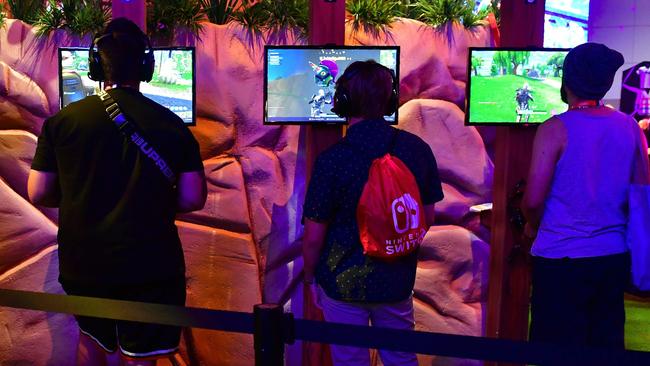Fortnite addiction is harming a new wave of Australian kids, sparking aggression, absenteeism
Fortnite is affecting a new generation of Australian children with devastating consequences. Its addictive appeal is leaving kids and teens out of control — with some even threatening arson.

News
Don't miss out on the headlines from News . Followed categories will be added to My News.
Australian children as young as seven years old are launching aggressive attacks on their parents, lying to get out of school, and avoiding family holidays to play Fortnite marathons as the video game phenomenon recruits a new generation of underage players.
In one extreme example, a teenage boy threatened to set fire to his room unless his parents gave him back his computer, before carving his name in a wall of the family home.
Education and neuroscience experts warn excessive and premature use of the video game, and those like it, is leading to a ballooning crisis for Australian families, some of whom are now checking their children into dedicated rehabilitation centres to wean them off screens and reintegrate them into social, family and school life.
And psychiatrists are calling for greater recognition of the problem by the Australian government so more affected families can afford to seek treatment.

Despite its release more than a year ago, Fortnite: Battle Royale remains at the centre of underage video game obsessions, experts say, with the multimillion-dollar phenomenon now reporting more than 250 million players worldwide.
The Epic Games creation, which has been described as Hunger Games meets Call of Duty, even broke its own record earlier this year, with more than 10.8 million people playing simultaneously.
While the game features several modes of play, the best known sees 100 players dropped on to an ever-shrinking battlefield where they must kill all other players to be the last avatar standing.
The violence is cartoonish, the game free to play and available across smartphones and consoles, with developers making money from personalising characters, buying victory dances, and loot boxes.
Learning expert and neuroscience communicator Jill Sweatman said Fortnite’s low entry price continued to attract children, even though many were too young and mentally unprepared to handle its content.
“Children as young as seven and eight (years old) have been overly committed to Fortnite and this game has an age recommendation of 13,” she said.
“You have kids from a very young age exposed to significant violence. There are short-term consequences and significant long-term consequences to this.”


